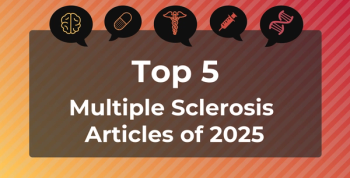
Managing Symptoms in Patients With Multiple Sclerosis
Fred D. Lublin, MD, FAAN, FANA: Over the past 25 years, we’ve paid a lot of attention to disease-modifying therapies for multiple sclerosis [MS], and we now have almost 20 different choices. But equally important is symptomatic care for patients with the illness. And 1 of the axioms that we work by is that no matter where someone is in the spectrum of the disease—and MS can be very mild to severe—there’s always something you could do for them. And the idea of symptomatic care, as opposed to disease-modifying therapies, is to make their lives better—to take their individual symptoms and treat them. There are things like pain, which could be prominent: neuropathic pain, pain from joints that are not getting enough use and such—that’s an important one we treat—spasticity, and increased tone. We have medications, physical therapy, baclofen pumps, things of that sort, and Botox. Bladder dysfunction is very common in MS, and we have a number of different ways of treating it, depending on what the bladder difficulty is. It could be failure to empty, failure to hold, or a combination of both—what’s called dyssynergy—but it affects people’s lives.
Depression is much more common in MS than it is in the general population and more common than in other chronic diseases, suggesting there’s an organic basis for it. Fortunately, the depression of MS tends to respond to the same medications as people who don’t have MS but are depressed, and they tend to respond well. Cognitive dysfunction is something we need to deal with. Sexual dysfunction. There are a whole host of things—tremors and such. And the important point is to deal individually with each 1; take them apart. Sometimes it means adding on a medication, sometimes it means taking away medication. And sometimes it means using a medication that could serve multiple purposes.
It takes a team of providers: physicians, nurse practitioners, nurses, social workers, physical therapists, physicists, psychiatrists, etc. But it’s very much a team because MS can affect any part of the body, because it can affect any part of the central nervous system, and that controls all of your body. And so it must be managed in different ways. It’s not just giving someone medication to treat the MS. You need to treat with the whole person. There are many social issues, which is why we employ social workers, and nursing issues; there’s sometimes the need for injections. So a care approach, a team-care approach, is critical.
We treat acute exacerbations with high doses of steroids. It’s 1 of the few areas in which neurologists are more aggressive than most other areas of medicine. We use very high doses of steroids. Sometimes they’re given intravenously, although some more recent work has suggested that you can give very high-dose oral steroids as well. Depends on the severity of the exacerbation. The data supporting this are not great. But it’s done pretty routinely, now, to give people either 3 to 5 days of either intravenous or high-dose oral methylprednisolone or the equivalent.
Sometimes individuals won’t respond well enough, and if they have residual deficits from the exacerbation that are serious, then one can use plasmapheresis—plasma exchange—and that tends to improve recovery in about an additional 40% of individuals.
Newsletter
Stay ahead of policy, cost, and value—subscribe to AJMC for expert insights at the intersection of clinical care and health economics.









